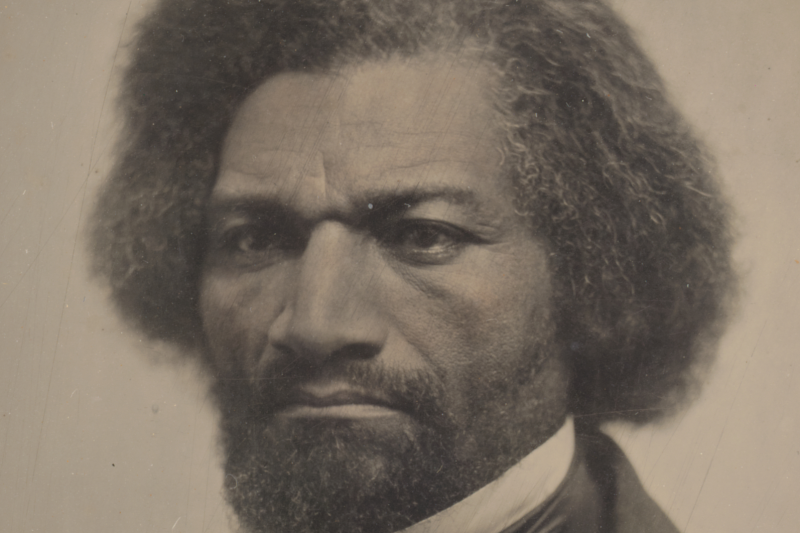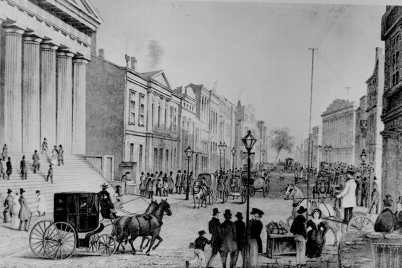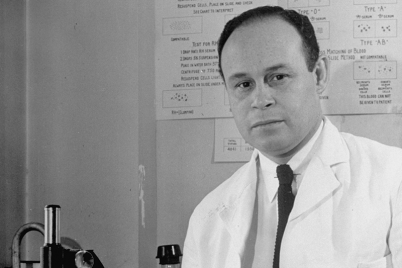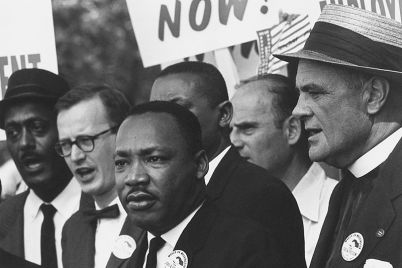Frederick Douglass called the drafters of the Declaration ‘hypocrites’ for not using the document to abolish slavery. [National Portrait Gallery, Smithsonian Institution]
BY JACQUELINE HUBBARD | President, ASALH
On November 7, 1775, the representatives of the English King George III issued a proclamation to the American colonies that freed “all indentured servants, Negroes or others … able and willing to bear arms…” with British troops. Less than eight months later, on July 4, 1776, the American colonies declared their independence from England and King George. Representatives of the American colonies signed the Declaration of Independence a month later.
Although they clearly wanted their freedom from England, no steps were taken to grant freedom to black Americans. Several thousand black people fought for the colonies in the Revolutionary War, yet few were freed afterward.
The war did nothing to abolish the institution of slavery in America; however, the words in the Declaration of Independence served as the touchstone of American egalitarianism. After the Revolutionary War, this declaration was used in many ways, such as the struggle to abolish slavery, establish the foundation for the Emancipation Proclamation, and the justification for the Civil War that ended slavery some 90 years later, in 1865.
It has continued to be used in arguments for equality and due process under the law for all Americans.
Thomas Jefferson and John Adams primarily drafted the language in the Declaration of Independence. On June 11, 1776, a committee consisting of John Adams, Benjamin Franklin, Thomas Jefferson, Robert R. Livingston and Roger Sherman was appointed to draft the document.
In his autobiography, Adams states the committee of five decided to appoint Jefferson and himself to write the final document. The final draft utilized many phrases and terms to justify and preserve freedom for all citizens.
For example, it states in part as follows:
“When, in the course of human events, it becomes necessary for one people to dissolve the political bonds which have connected them with another and to assume… the separate and equal station to which the laws of nature and of nature’s God entitle them, a decent respect to the opinions of mankind requires that they should declare the causes which impel them to the separation.”
It further states:
“We hold these truths to be self-evident, that all men are created equal, that they are endowed by their Creator with certain unalienable Rights, that among these are Life, Liberty and the pursuit of Happiness. “That to secure these rights, Governments are instituted among Men, deriving their just powers from the consent of the governed…”
This notion of equality for all is important because there is within the Declaration, no allegation of the superiority of any one race. The Declaration of Independence does not state that it was intended only for white Americans. It does not mention slavery or involuntary servitude.
William Lloyd Garrison used the phrase “self-evident truths” in his anti-slavery arguments. Frederick Douglass called the drafters of the Declaration “hypocrites” for not using the document to abolish slavery.
At the end of the Revolutionary War, the Quaker David Cooper stated the document declared “…that blacks are born equally free with whites: it is declared and recorded as the sense of America.”
It was also used as the basis for the Amistad case, and Abraham Lincoln used it in his arguments for the righteousness of the Civil War, stating the framers “…meant to set up a standard …for free society…augmenting …happiness…to all people of all colors everywhere.”
Martin Luther King, Jr. referred to the Declaration of Independence in his 1963 “I Have a Dream” speech by declaring, “…we hold these truths to be self-evident, that all men are created equal.”
Supreme Court Justice Earl Warren used the reference to the Declaration of Independence in the Civil Rights cases of the 1950s and 1960s. It was also referenced in the Civil Rights Act of 1964 (Title II and Title VII).
It remains relevant and useful today as the struggle for equality for all people from all segments of society continues.
Attorney Jacqueline Hubbard graduated from the Boston University Law School. She is currently the president of the St. Petersburg Branch of the Association for the Study of African American Life and History, Inc.









It’ll all make a difference and a change for the better soon…